This is your very first post. Click the Edit link to modify or delete it, or start a new post. If you like, use this post to tell readers why you started this blog and what you plan to do with it.

This is the post excerpt.
This is your very first post. Click the Edit link to modify or delete it, or start a new post. If you like, use this post to tell readers why you started this blog and what you plan to do with it.

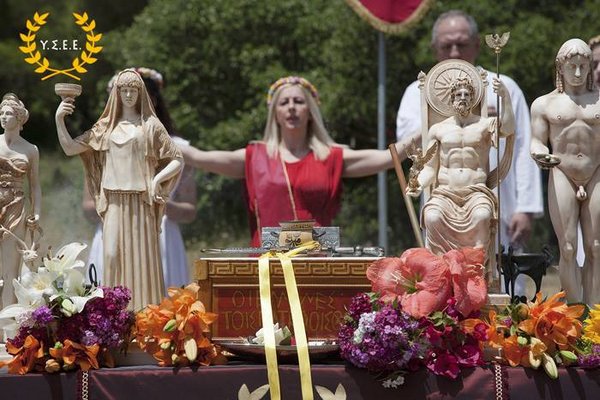
On a few occasions, I will see someone try to criticize contemporary Paganism by attacking its “legitimacy.” Some might criticize its practitioners for attempting to resurrect traditions that were systematically destroyed, while others may laugh and advance a form of misotheism against the Gods for being somehow “irrelevant.” These assertions are not only faulty, but are nothing more than a self-indulgent echo chamber of smug satisfaction.
Firstly, some might try to put forward a hostility towards the Gods who contemporary Pagans worship, and claim that the decline of a belief system indicates that the God(s) of said system are somehow irrelevant, if even real. This point is imprudent, because throughout history it wasn’t the Gods failing people, but rather it was people failing the Gods. After all, it was people who would run throughout Syria destroying sacred spaces (both in ancient times and today), people who destroyed grand temples to the Gods, and people who on several occasions declared it illegal to engage in the proper cultus of the Gods and participate in sacrifice to the divine in any form, even privately in one’s own home, on the risk of the death penalty.
Some may retort how I am “conveniently blaming people,” and yes, this is precisely what I am doing. People are to blame for this, as for so much else. This entire point becomes moot because it doesn’t say a single thing about the Gods, but it does say a whole lot about how far mankind can devolve into degeneracy and depravity. And it isn’t like this is unique to ancient paganism; the same issue is even prevalent in parts of the world today, not only among even contemporary pagans, but extending to other Abrahamics and peoples of related faiths. The logic is ultimately weak and counterintuitive; after all, hadn’t Islam, a different belief system from Christianity, not only overthrown the Galileans in a significant amount of regions across the globe, but also asserted their own systems of beliefs and practices in these areas centered around the worship of the same God? Using this very same logic, would Islam now be the superior religion? If so, why did YHWH change His mind and assert a new preference? The point is exceedingly crude and ignorant. To blame the divine for the sins of man is an act of hubris. It’s peoples own faults for blinding themselves to the light of the divine and bringing about the destruction of ancient traditions. After all, it’s difficult to worship a God if terrorists are coming to persecute you by confiscating whatever you own, imprison and torture you, or sometimes even kill you, even in a contemporary society.
Truly, no one needs a license to worship the Gods they choose, or that have chosen them. If they do require such a license, what could possibly constitute it? What makes it “legitimate” for somebody to worship Yeshua or YHWH as opposed to Isis or Athene? The cultures that many contemporary Pagans seek to emulate may have died at one point, but that doesn’t mean that there isn’t any value in their philosophical worldview or understandings, nor does it mean that they don’t derive some meaningful relationship to the world because of it. At the barest, to deny the existence of other people’s Gods weakens the case of your own. If you suddenly decide to call another person’s religious experience fake, especially if from or derived from a set of long-standing religions with the historical agency of living, individual Gods, then what value are your own? To even assert that these traditions and practices are somehow less valuable than those that survived destruction at the hands of evangelism, proselytization, and persecution is itself a robust display of unconcealed ethnocentric snobbery. The idea that what we have now, the violent Protestant overculture that has stripped the world of its resources and created a system of consumerist hyper-commodification, is somehow “better” or “more acceptable” than the traditions of our ancestors is nothing more than self-indulgent pomposity.
Butler, Edward P., Dr. “Polytheism as Methodology in the Study of Religions.” Henadology. October 30, 2016. Accessed January 14, 2018. https://henadology.files.wordpress.com/2016/11/polytheism-as-methodology.pdf
Nixey, Catherine. The Darkening Age: The Christian Destruction of the Classical World. London: Macmillan, 2017.
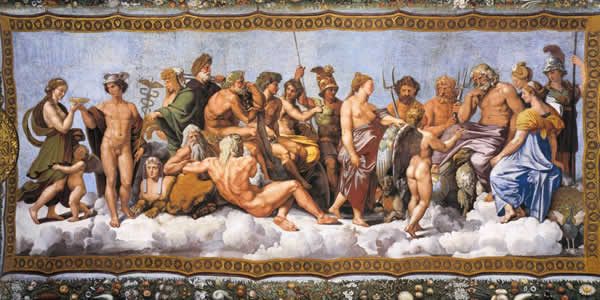
There’s an abundantly annoying claim in polytheist circles which accomplishes essentially nothing. The frivolous claim puts forward that there are two types of people who call themselves “polytheists” based on two beliefs regarding the divine:
There is a reason why this armchair terminology is useless: It distinguishes nothing.
What “hard polytheism” describes is simply just polytheism. It’s the belief that there are numerous discrete, real existing Gods with independent agencies. End of story. This can mean anything from three to a thousand, all the way to a near-infinite amount. What polytheism is isn’t negotiable.
Soft polytheism, on the other hand, is essentially something that is not polytheism. The various ideas that “soft polytheism” is usually used to describe already have names; none of which are “polytheism” because what is being described is not polytheistic (a belief in independently existing entities). It doesn’t exist for any other reason but to reduce the Gods down into a neat package, because it’s inherently messy. One either believes in many Gods, or does not. (e.g., if you believe in archetypal symbolic representations, you do not believe in multiple Gods. Jungian Archetypalism is about human psychology and a “collective unconsciousness” that is synonymous with nature, not about the existence of independent entities with agency.)
We can see that the term causes more issues the good it provides. With “soft polytheism,” you have two significant problems:
Firstly, because the term is so vague in itself without a concrete definition, people will often misunderstand what is being said and thus cause miscategorization. The term “soft polytheism” has been used to describe anything from functionally atheistic archetypalism and pantheism, to things that are separate but more than compatible with polytheism such as monism and panentheism, to merely forms of polytheism that incorporate historical elements of syncretism. The term is so muddy that it can put a pious Stoicist or Platonist, with a full belief in independently existing Gods but who hold a panentheistic understanding of the divine, in the same category as an atheistic archetypalist or some vague pantheist. As such, in the words of my friend Hrafnblod, the “soft polytheism” distinction provides a convenient door for secular atheists (e.g., “Humanistic Pagans”) to adopt the facade of a religious tradition without requiring any actual belief nor effort from them, as well as to undermine, subvert and stifle actual development of polytheist theology (and polytheistic practitioners themselves) by presenting a “more rational” alternative, which leads into my second point.
Secondly, it doesn’t exist for any other reason but to produce an “us vs. them” mentality and muddle the landscape of polytheistic theology. The argument of “soft polytheism” intends to convey that actual polytheism is to be characterized as an “extreme” fundamentalist relative to some “moderate” position. As such, it attempts to whitewash polytheistic theology, which is inherently subversive to Monotheist Abrahamic-centric ethos and makes it more tolerable to people who view polytheism as ultimately a dangerous, aberrant form of worship. “Soft polytheism” isn’t merely incompatible with polytheism; it is also hostile and damaging to it.
Ultimately, the major problem with the two terms is that it’s an either/or dichotomy, and polytheism absolutely isn’t an either/or theological quality. Polytheism is just “hard polytheism,” and there is a clearly defined line between what polytheism is (worship of many Gods) and what it is not.
(Special thanks to TheLettuceMan and Hrafnblod)
Hrafnblod, Reddit post “Against the dismissal of archetypes”, Nov 18, 2017 (2:22:59 a.m. UTC), accessed November 26, 2017, https://www.reddit.com/r/pagan/comments/7dnh84/against_the_dismissal_of_archetypes/dpzksxu/
TheLettuceMan. “Baggage and Reactionary Definitions.” Of Axe and Plough. August 16, 2016. Accessed November 26, 2017. https://thelettuceman.wordpress.com/2016/08/16/baggage-and-reactionary-definitions/

Often, monotheists will end up invoking Occam’s Razor, a theory at its most basic principle summed up as “the simplest theory is most likely to be correct,” as a defense for their belief (or lack thereof) and as an attack against polytheism. Here I shall dissect their use of Occam’s Razor to show that monotheism is not “simpler” or “more likely” than polytheism in any way, but rather the opposite.
Firstly, Occam’s Razor at its most basic principle is “All things being equal; the simplest theory is better”… But all things are not equal. With polytheism, there is more power in the theory, as it has more explanatory and predictive power.
The claim that one God is simpler is, in itself, inaccurate. It can be easily countered.
Butler, Edward P., Dr. Essays on a Polytheistic Philosophy of Religion. New York: Phaidra Editions, 2014.
Butler, Edward P., Dr. “ Monotheism is Atheism, and some thoughts on Vedanta · EPButler.” Storify. Accessed May 19, 2017. https://storify.com/EPButler/monotheism-is-atheism-and-some-thoughts-on-vedanta
Dillon, Steven. The Case for Polytheism. Place of publication not identified: Iff Books, 2015.
Flavius Claudius Iulianus Augustus, and Wilmer Cave. Wright. The works of emperor Julian. London: Heinemann etc., 1962.
Greer, John Michael. A World Full of Gods: An Inquiry Into Polytheism. Tucson, AZ: ADF Pub., 2005.
Iamblichus. De Mysteriis. Translated by Emma C. Clarke, John M. Dillon and Jackson P. Hershbell. Atlanta: Society of Biblical Literature, 2003.
Kupperman, Jeffrey S. Living theurgy: a course in Iamblichus philosophy, theology and theurgy. London: Avalonia, 2014.
Many gods, One logic. Directed by Epified. YouTube. https://www.youtube.com/watch?v=1KWM7P1K1mU.
Plato, and Benjamin Jowett. The Complete Works of Plato. United States: Akasha Pub., 2008.
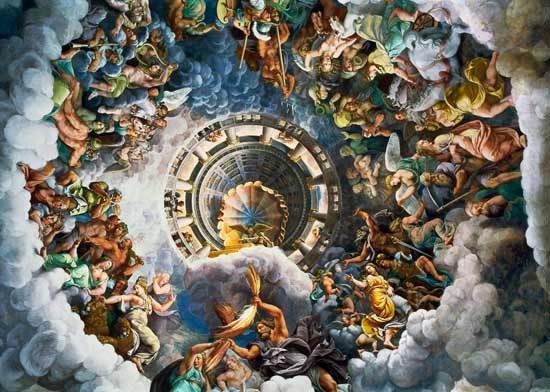
After meeting my friend Edward Butler, I’ve come to learn that a degree of pragmatism is necessary for polytheism. Not only is it proper to accept the existence of all Gods, but it is more effective than the attempt to discount religious experience by monotheists.
The positivity of experience means no experience can invalidate another. One can experience but only one God and one God alone, but if you infer from this that there is no other God and that this is “the only God,” then you’ve hit a stump. By doing this, you’ve invalidated the experiences of others and made a negative inference. The negativity of the inference makes it ontologically inferior to the positive experience of myself or another. You can’t discount someone else’s religious experience while still putting forth a claim that your own is real.
When you deny the existence of other people’s Gods, you weaken the case for your own. If you suddenly decide to call another person’s religious experience fake, especially if from a set of long-standing religions, then what value are your own? The existence of your own Gods is reduced to subjective choice, merely based on your own experience as if it were the only experience, instead of affirmation over the existence of Gods. Theism, properly understood, is just polytheim. In the words of Edward Butler, “deny any divinity, and you deny all divinity.”
As such, a polytheist can use the theory of pragmatic truth and can see all religious experience as true, as a polytheist can believe in an infinite amount of Gods and is thus able to accept all religious experience as true. That is not to say “worship every God,” as you can ignore Gods (and polytheists do it all the time), but rather I am saying accept the existence of all divinity.
Due to that, a pragmatic approach can be taken when tackling monotheism, as monotheism needs special bargaining since it just invalidates all other religious experience as “false” but puts forth a claim that its own religious experience is true. This, funny enough, shows doctrines such as monotheism, which is the worship of one God which involves a distinct denial of all other Gods, can be deemed a form of atheism that merely flirts with religious experience based on its denial of all divinity except one based on religious experience that is only with that particular.
Butler, Edward P., Dr. Essays on a Polytheistic Philosophy of Religion. New York: Phaidra Editions, 2014.
Butler, Edward P., Dr. “ Monotheism is Atheism, and some thoughts on Vedanta · EPButler.” Storify. Accessed May 19, 2017. https://storify.com/EPButler/monotheism-is-atheism-and-some-thoughts-on-vedanta
James, William. The varieties of religious experience: a study in human nature: being the Gifford Lectures on natural religion delivered at Edinburgh in 1901-1902. United States: CreateSpace Independent Publishing Platform, 2016.
James, William. Pluralistic universe. Place of publication not identified: Hardpress Publishing, 2012.

Rationalism and Empiricism are two concepts in epistemology that seem to oppose each other directly. The former is based on the concept of apriori knowledge such as innate ideas, deduction, and reason. The latter is dependent on aposteriori knowledge, which is a type of knowledge not dependent on innate ideas but rather on induction and sense perception. I propose that these two seemingly opposing ideas are not only in harmony but are both necessary to understanding the greater universe and religion. One cannot be independent of the other; both are necessary.
If you look to the Gods, their essential essence is beyond the material realm altogether. However, simultaneously, empiricism is necessary because our experience with the divine is empirical. We do not experience their intelligible essence, which is so beyond us and near impossible to determine, but rather we can only see their activities, and even those tend to be viewed second hand (as they manifest in nature, not, in any obvious way, immediately from their hands). As such, empiricism is necessary to understand the divine in our material universe.
There exists a problem with solely relying on empirical evidence and assuming there are no such things as nonmaterial beings, such as deities and greater kinds, based on that; empiricism relies on materialism. Materialism assumes that things that cannot be empirically weighed cannot exist. The problem with that assumption is that it’s something that in itself cannot be empirically supported. You cannot prove a negative; and as such, materialism suffers from a weak, and unrecognized, metaphysics.
Sole reliance on our senses isn’t intelligent since our senses can be easily deceived. We can bear witness to false things and optical illusions, or even simply make mistakes when trying to learn the truth. As such, sense perception isn’t something to be solely depended on to understand the truth.
Math, for example, can be understood apriori. We understand that Pythagoras’ theorem is true for all triangles, despite not needing to test every triangle. Math and logical truths aren’t true because of our senses, but rather because of reason’s ability to connect ideas, or Forms. The idea is eternal and unchangable since the idea isn’t dependent on anything physical for its existence. Whether or not a physical triangle is drawn, Pythagoras’ theorem still holds true.
Though we only can only bear witness to the Gods’ activities, we must use reason and deduction to truly understand the divine, to the best of our ability.
Though pure reason is to be stressed over empiricism, empiricism still has its uses in understanding the divine and the universe around us, and as such both rationalism and empiricism are necessary for understanding the cosmos.
(Special thanks to Jeffrey S. Kupperman for heavily inspiring me with this!)
EsEinsteinium03. YouTube. January 21, 2014. Accessed November 14, 2017. https://www.youtube.com/watch?v=m1g8wjsEQyw.
Markie, Peter. “Rationalism vs. Empiricism.” Stanford Encyclopedia of Philosophy. July 06, 2017. Accessed November 14, 2017. https://plato.stanford.edu/entries/rationalism-empiricism/.
Kupperman, Jeffrey S. “Living Theurgy: a course in Iamblichus Philosophy, Theology and Theurgy”. London: Avalonia, 2014.
Plato, and Benjamin Jowett. The complete works of Plato. United States?: Akasha Pub., 2008.
Yount, David J. Empiricism versus Rationalism. 2013. Accessed November 14, 2017. http://www.mesacc.edu/~davpy35701/text/empm-v-ratm.html.
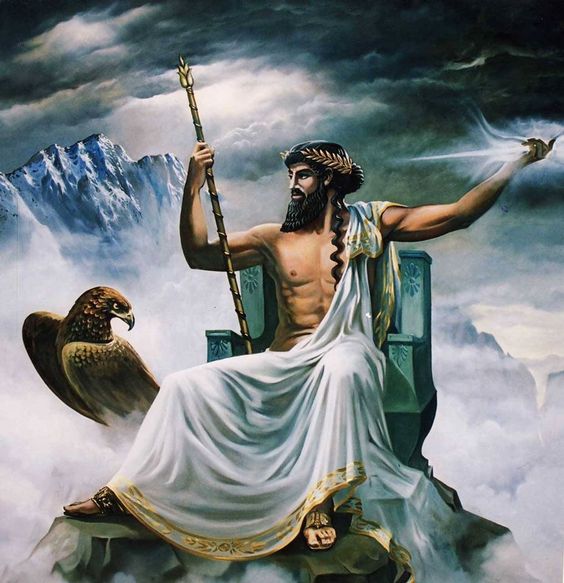
Mount Kasios, known as Jebel al-ʾAqraʿ (جبل الأقرع) in modern Arabic, is known to be a sacred mountain in Syria that hosts great divine power. It has been recognized by many names- such as Mount Hazzi by the Hurrians and Mount Sapan by the Canaanites. The sacred site can be understood as a “Mount Olympus of the Near East,” and in ancient times it was considered a sacred home of the storm deity Baʿal Zaphon, known to the Hellenes as Zeus Kasios, and His sister ʿAnat along with the other deities. In mythology, it is this location where a great battle between Zeus Kasios and a sea-serpent entity identified by the Greeks as the monster Typhon took place. The temple of Zeus Kasios was described as being “dark with clouds,” and the deity is described to appear as a dark-bearded figure.
The site is known for many miracles. On 114/115 ACE Emperor Trajan was spared from a catastrophic earthquake that struck Antioch and gave great offerings to the God as thanks. On 129 ACE Emperor Hadrian climbed the mountain in the darkness of night to witness the dawn at its summit. As he prepared to honor the God with a sacrifice, a lightning bolt at the peak flashed and killed both the animal victim as well as the attendant who was about to slaughter it. Emperor Julian also experienced the deity, however in a much more personal experience.
On spring of 363 ACE, the divine Emperor Julian took the route to Mount Kasios to bear witness to the early dawn and give worship and provide a sacrifice to Zeus. The sun rose, and in broad daylight, it is written by Libanius that Julian received an epiphanic vision from the God, and “saw the God and after seeing him… received advice.” It is here that Zeus, “[as] one of the immortals descended from heaven, took [Julian] by the hair, spoke to him, and after listening to [Zeus’] answer [Julian] departed.”
Brown, John Pairman. Israel and Hellas: Vol. 3 : The legacy of Iranian imperialism and the individual. Berlin: W. de Gruyter, 2001.
Fox, Robin Lane. Travelling Heroes: In the Epic Age of Homer. New York: Vintage Books, 2010.
Kalleres, Dayna S. “A City of Religious Pluralism and Spiritual Ambiguity.” City of Demons, 2014, 25-50. doi:10.1525/california/9780520276475.003.0001.
Libanius. Selected works: The Julianic orations. Cambridge: Harvard University Press, 1987.
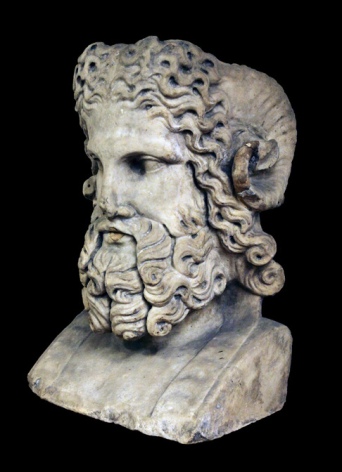
During a conversation with my friend Jeffrey S. Kupperman, the topic of divine omnipotence came up. It led to an interesting discussion. In short, properly understood, no deity is omnipotent, or “all powerful” in traditional Hellenism, and in general, the concept doesn’t really make a lot of sense if we attempt to take it literally. From a relative perspective, we might say Zeus-Helios, the Celestial Demiurge, as the most powerful deity, is in effect all powerful in that He has power over all the other Gods. But that’s not really “all-powerful” in the sense that we’re talking about. So if we want to describe a God as omnipotent, what can we do? We could challenge the notion of what “all-powerful” actually means. For instance…
This second option seems, realistically, better, and leads to the development of a third option; to acknowledge that the conception of theistic Deity as being all good, all knowing, all present, and all powerful is third-rate theology, only meant to give something that cannot be understood characteristics that we can somewhat grasp, but makes sure we don’t conflate Deity with just really powerful people by putting “all” (omni) in front of each descriptor.
The Celestial Demiurge isn’t all good or all knowing or all powerful, etc., The Demiurge is the Demiurge, and does exactly what He is supposed to do. His essence (and the essence of the Gods) as Iamblichus tells us, is nearly impossible to determine; we can only see His actions, and even those are by large only viewed second hand, most often manifesting from nature rather than immediately from His hand.
Not even the One, which is the Good itself, can be said to be omnibenevolent, or “all good.” In Platonic ontology, the source of a quality is itself beyond that quality. An analogy of this is a bucket pouring out water: the bucket holds the water because it is beyond the water; it doesn’t turn into water particles. This essentially means that the Good, as the source of all good, is beyond all good. The Good is good because everything desires participation in it; however the Good doesn’t desire participation in anything because it is above (ontologically prior to) all things.
Likewise, the Demiurge is simply the Demiurge, and does exactly what He is meant to do; create order. Zeus isn’t all powerful in the sense that mainstream Western Abrahamics think that YHWH is. There is no creation ex nihilo, as the Demiurge, our universal creator, would need something infinite and eternal to draw on to craft. After all, the word Demiurge quite literally means “craftsman,” and the craftsman needs materials to work on and shape. Matter (hyle) comes from the One, and Aion, the first manifestation of Being, is described the creative power that the Demiurge draws from to craft the cosmos out of the primordial chaos that Plato’s Timaeus describes. The Demiurge’s does exactly what His role entails; create order.
For a close analogy, we can look to Kemetic theology with the concepts of Ma’at and Isfet for a comparison.
Apophis is the embodiment of Isfet and is born from Ra’s umbilical cord; meaning it’s merely something that comes as a result of Ra’s ordering of the cosmos – something that has a negative existence; without Being (Ousia). It doesn’t have an independent existence, and this is further evident with how it’s easily slain by the Gods each and every day without fail in mythology. As such, Isfet is analogous to evil in a Platonist sense: chaotic and negative disorder. Now, we’ve already dismantled the traditional Abrahamic view of God, and can thus conclude that good isn’t the typical “light side” of the Good vs. Evil dichotomy. I’ve already written how evil doesn’t exist as a positive, but Good most certainly does.
This means that Good is, ultimately, order. What we see in the Good is an emphasis on harmony and alignment with the Good. The Demiurge’s job is ordering of the cosmos, and order is something that is, ultimately, good. The Good is harmony; the Good is Order. This is what the Demiurge brought when He ordered the cosmos out of chaos. To achieve henosis, union with the One, is to take your proper place in this order.
Hence, great and divine thinkers such as the divine Plato, and even the Iranian prophet Zarathustra, said that we best serve the Gods by assisting them or being helpful. We help the divine by fulfilling tasks which benefit humankind, which spreads the Good; which as we understand, is order. Hence while omnibenevolence is useless as a term, it can be understood that the essential nature of the divine is one of benevolence.
(Special thanks to Jeffrey S. Kupperman for heavily inspiring me with this!)
Kupperman, Jeffrey S. Living theurgy: a course in Iamblichus philosophy, theology and theurgy. London: Avalonia, 2014.
Nasios, Angelo. “The Hearth of Hellenism: We Don’t have Relationships with the Gods, or Do We?” Agora. July 14, 2017. Accessed August 11, 2017. http://www.patheos.com/blogs/agora/2017/07/hearth-hellenism-2/
Plato. Plato Five Dialogues: Euthyphro, Apology, Crito, Meno, Phaedo. Translated by G. M. A. Grube and John M. Cooper. 2nd ed. Indianapolis: Hackett Publishing Company, Inc, 2002.
Plato, and Benjamin Jowett. The complete works of Plato. United States?: Akasha Pub., 2008.
Proclus, and E. R. Dodds. The Elements of Theology: A Revised Text with Translation, Introduction, and Commentary. Oxford: Clarendon Press, 2004.
This is the post excerpt.
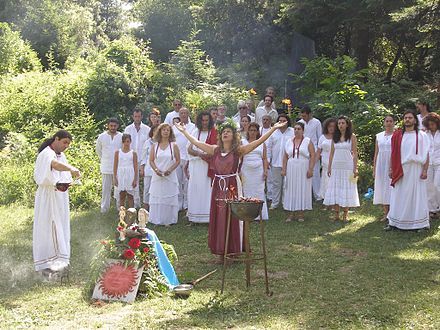
A: A rigid and strictly historically informed methodology of reconstructing the practices and world view of the past. It is revivalism of the cultures of the European-Mediterranean cultural basin. It essentially means doing your homework for the practices you’re trying to emulate.
A: Reconstructionism is merely the methodology of practice; not a form of belief. It’s not a “denomination”, and it has little to do with actual belief. Reconstructionism is a tool; not a religion.
A: Reconstructionism isn’t ignoring the cultural differences between now and antiquity, nor is it trying to live like it’s the Iron Age, nor is it even practicing the precise religion of the Iron Age. It isn’t disregarding modern ethics and values.
A: No. The religions that reconstructionists follow, if practiced, will be living religions. This means there will be change and adaptation, and with that spiritual progression.
A: The cultures that reconstructionist polytheist Pagans seek the emulate may be dead, but that doesn’t mean there’s isn’t any value in their philosophical world view, nor does it mean that their understanding is somehow less valuable than those that survived destruction at the hands of evangelism, proselytization and prosecution. These questions heavily display blatant ethnocentric snobbery. The idea that what we have now, the violent Protestant overculture that has stripped the world of its resources and created a system of consumerist hyper-commodification, is somehow “better” or “more acceptable” than the traditions of our ancestors is nothing more than self-indulgent pomposity.
(Special thanks to /r/Pagan for assisting with making this)